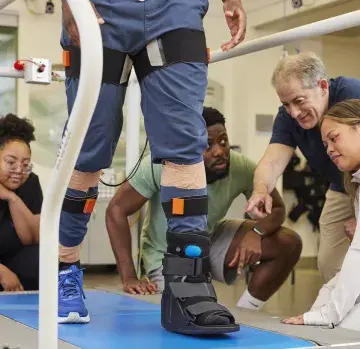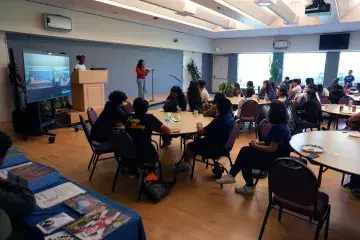Fighting for Compassionate End-of-Life Laws
Moving from California to Oregon was not in the plan, Dan Diaz recalled.
But it was the only place where his young wife, Brittany Maynard, wanted to live because that’s where she wanted to die.
Maynard, then 29 and terminally ill with brain cancer, had gained national recognition in 2014 after she moved to Oregon to medically end her life under the state’s “Death with Dignity Act.”
She chronicled her final months and weeks in a series of moving videos and Facebook posts.
Today, in honor of his wife, Diaz continues the battle to support similar laws in the U.S., where six states including California now allow medical aid in dying.
Diaz will co-host a public forum on end-of-life choices and palliative care at Samuel Merritt University, Wednesday, March 29 at 5:30 p.m.
“It’s important for the future generation of healthcare providers to know that death is not failure,” Diaz said. “Brittany had a supportive team, but the terminally ill should not have to move to another state to find that support.”
Yet those state laws could see a renewed challenge in Judge Neil Gorsuch, the Supreme Court nominee whose book “The Future of Assisted Suicide and Euthanasia,” has rekindled a debate around end-of-life laws and ethics.
Proponents of end-of-life options such as Diaz want to know if Gorsuch will support their efforts if cases were to reach the Supreme Court. Diaz spoke with Katie Couric about the topic.
“Patients need to be at the center of all decisions,” Diaz said. “Including their end-of-life decisions. Too often healthcare providers can forget there’s a person at the center of all this, so it’s important that all of us play a role in making sure these rights don’t go away.”
At the forum, Dr. Jeffery N. Stoneberg, D.O., a leading expert in palliative care will also discuss the relatively new form of medical care and how it distinguishes from hospice.
“Although palliative care and hospice share quality-of-life goals, they’re different in important ways,” Stoneberg said. “Not everyone who’s touched by a palliative care physician has a terminal illness but they need help with advance care planning.
“For students, it’s important to recognize that every person is different and their desires for treatment needs to be individualized,” Stoneberg added.
The event is the 27th Annual Picchi Memorial Lecture, named in honor of Dr. and Mrs. Joseph Picchi, which aims to inform the community about pressing medical topics and raise funds for the John A. Graziano Memorial Library.
To RSVP call 510.869.8628 or email gcaya@samuelmerritt.edu


